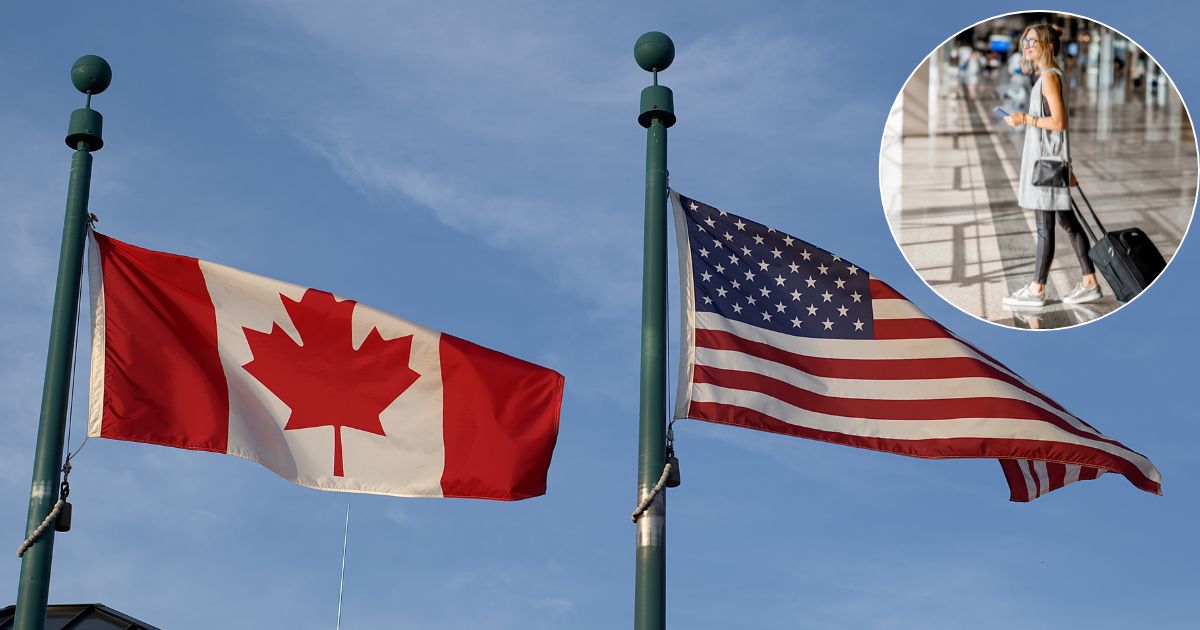Amidst increased political tensions between Canada and America, the Canadian government has issued a serious travel advisory to its citizens visiting the United States. The travel advisory issued online urged those visiting to “expect scrutiny” when crossing the border, which includes electronic devices like phones, laptops, and tablets—without providing a reason.
The advisory further stated that passengers failing to follow these rules might face serious charges like device seizure, travel delays, or the denial of entry for non-US citizens. Meanwhile, as per U.S. law, the country’s customs and border protection (CBP) security may even ask for the passwords of their devices. In return, the U.S. has also issued a series of rules.
As per CNN, passengers who refuse to give out these details may have their devices confiscated, which may result in unwanted delays or even detention. Moreover, authorities would also ask people to keep the devices in airplane mode to avoid sudden unwanted downloads and make screenings complicated.
Back in March, Dr. Rasha Alawieh, a Lebanese assistant professor and physician at Brown University, was deported to Lebanon after U.S. agents at Boston Logan International Airport discovered deleted photos of the late Hezbollah leader Hassan Nasrallah and Iran’s Supreme Leader Ayatollah Ali Khamenei on her mobile phone.
As per a court filing obtained by WCVB, it read, “In explaining why these multiple photos were deleted by her one to two days before she arrived at Logan Airport, Dr. Alawieh stated that she did not want to give authorities the perception that she supports Hezbollah and the Ayatollah politically or militarily. While U.S. agents are known to be strict with their immigration and security clearance process, civil liberties groups have long criticized the rule as invasive.
View this post on Instagram
However, Fredrick Dimanche, the Director of the Ted Rogers School of Hospitality and Tourism Management at Toronto Metropolitan University, spoke to the Globe and Mail. He said, Let’s remember that going to another country is a privilege. We are guests in another country, so they have the right to ask whatever questions they want of us.”
The mentioned scrutiny comes in the wake of America and Canada being at odds over specific political issues, including trade agreements, immigration crackdown policies, climate change policies, and the handling of international relations, especially with countries like China and Iran. Recently, On April 2, 2025, President Donald Trump unveiled an extensive list of tariffs aimed at various countries across the globe.
View this post on Instagram
Canada was also not added to the list. But since there have already been tariffs added to Canadian goods, this isn’t startling. Moreover, as per the US-Canada-Mexico agreement, certain goods face 25% tariffs along with a 10% tariff on energy and potash.
Meanwhile, Canada is already dealing with an extra 25% tariff on cars and other metal products. In addition, Donald Trump’s blunt jabs at their migration policies and illegal drugs have kept trade pressures high between the two nations.
These reasons have impacted the way Canadians are treated when crossing into the U.S. In addition, a growing number of high-profile deportations and refusals of entry have led to increased tension, with some visitors feeling unsafe and threatened. The travel advisory and its implications are a direct retort to these ongoing tensions.









